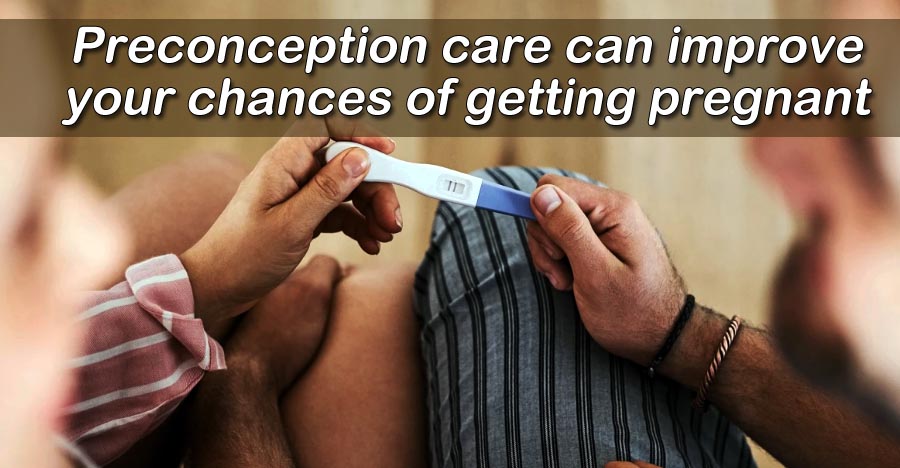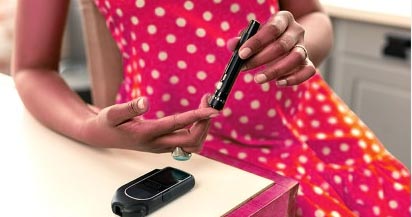Planning for a baby is an exciting time, but the strategies don’t just begin after you’ve become pregnant. Accredited Practising Dietititan Cindy Shea of the Baker Heart and Diabetes Institute, shares her expert advice on what you need to know about planning pre-conception
Your health in the lead up to pregnancy is an important yet often forgotten consideration that is especially critical for people with diabetes. It is best to start planning three to six months prior to trying to conceive so that you can establish and maintain a good health routine. As health professionals, we are seeing more people enter pregnancy with diabetes, with the rise of rates of early onset type 2 diabetes. The increase is due to a number of factors such as a higher proportion of women who come from ethnic groups being at high risk of type 2 diabetes (such as people from a South East Asian and Middle Eastern background), the increasing prevalence of women who are at a higher body weight prior to conceiving and the increase in couples choosing to start a family later in life.
Preconception care is important for all couples who are planning to get pregnant. Statistically, 50 per cent of pregnancies are unplanned. The literature is very clear that the environment prior to conceiving has an impact on genetic programming which can influence a baby’s future development and risk of health conditions such as obesity and diabetes. We also know that the period from pregnancy to when the baby is two years old – the first 1000 days – also plays a crucial role in their future health. This is influenced by the couple’s eating habits, lifestyle and exposure to various environmental factors.
For women and men living with diabetes (type 1 and type 2 and others) it is more important to start preparing for conception at least three to six months prior. Elevated blood glucose levels can impact your level of fertility, but if you can optimise it three to six months prior trying to conceive, it can greatly improve your chances of becoming pregnant and having a healthy pregnancy.
The main goals are to:
- Optimise glycaemic levels
- Maintain healthy diet and lifestyle habits
- Review medications and conduct appropriate medical checks including diabetes-related complications such as eye checks.
Optimising glycaemic levels
When preparing for pregnancy, it is advised to aim for a HbA1c of 6.5 per cent or less (48 mmol/mol) or come as close as possible to this. This is to reduce the risk of congenital abnormality and miscarriage, particularly in early gestation. A target should be discussed individually with your health team as they will assess your hypoglycaemia risk.
Healthy diet is key
The Australian Healthy Eating Guidelines provide good advice for optimising your diet prior to getting pregnant. We know that eating well and maintaining a healthy lifestyle helps to improve the quality of the women’s eggs, and the health of men’s sperm. It takes about two to three months to see the effects of a healthy diet, that’s why establishing a good routine that you can adhere to is really important.
Here are some key nutrients to include:
- Choose wholegrain breads, cereals and grains
- Incorporate variety of fresh fruits and vegetables
- Ensure adequate dairy or intake of dairy alternatives for calcium
- Choose folate-rich foods such as green leafy vegetables
- Limit saturated and trans fat
- Minimise sugar-sweetened beverages
- Moderate amounts of caffeine (<200mg/day)
- Ensure adequate omega 3 intake such as oily fish (aiming for 2-3 times/week) or plant-based sources
- Avoid or limit alcohol consumption This is a great opportunity for you and your partner to implement healthy eating and lifestyle habits. It helps you develop good habits and makes it easier when you do get pregnant.
Do I need to use supplements?
You should aim to meet most of your nutritional requirements with food first. Folic acid is the only supplement that is advised when trying to conceive. For the general population, women are advised to take 400 micrograms/day folic supplement at least once a month prior, and up to 12 weeks gestation. For women living with diabetes, it is advised to take a higher dose of 2.5-5mg/day at least three to six months prior conceiving and up to 12 weeks gestation. This is to reduce the risk of neural tube defect. It is best to speak with your doctor first before commencing on this supplement. Other supplements will be based on each individual and it is best to see an Accredited Practising Dietitian who specialises in pregnancy and diabetes.
Men’s health is important too
Nutrition and maintaining good lifestyle habits affect the health and quality of both egg and sperm. For men living with diabetes, it’s also important to optimise blood glucose levels as elevated glucose levels can lead to damaged sperm DNA and lower testosterone levels. Elevated glucose levels can also lead to other fertility issues such as erectile dysfunction and decreased sex drive (libido).
Some specific nutrients that can help with enhancing sperm health:
- Choose selenium-rich foods such as Brazil nuts and seafood
- Include zinc-rich foods such as oysters, fish, poultry and meat
- Limit trans and saturated foods
- Ensure adequate omega 3 intake including oily fish 2-3 times/week or plant-based sources such as walnuts and chia seeds
- Limit or avoid alcohol
Into pregnancy and beyond
For women living with diabetes, there are increased risks of pregnancy complications. These include a greater likelihood of neonatal hypoglyceamia, neonatal intensive care unit admission, miscarriage, caesarean before labour, pre-eclampsia and being large for your gestational age. All of this can be confronting and stressful or even put you off wanting to get pregnant. However, many women with diabetes have healthy pregnancies and babies. To make things less daunting and to empower you to make informed decisions about your diabetes management, it is important to ensure appropriate planning prior to conceiving and to have a supportive diabetes team to assist you. Your diabetes team should include an obstetrician, endocrinologist, diabetes educator, dietitian, and may include a physiotherapist and psychologist – all who specialise in managing diabetes in pregnancy care. Pre-conception planning gives you the opportunity to better understand your glycaemic patterns, implement appropriate nutrients and lifestyle habits and importantly, set you, your partner and future baby’s health. When you are pregnant the targets for BGLs or CGMS do change. Your diabetes team will be able to guide you during this process.
Important things to know:
- Planning for pregnancy is important to optimise glycaemic levels, dietary intake and lifestyle habits. This will set you, your partner and future baby on the road to good health.
- Ensuring good nutrients and maintaining healthy lifestyle improves the fertility and quality of women’s eggs and men’s sperm. This impacts on your baby’s development and risk of health conditions.
- Women with type 1 and type 2 need a high dose of folic acid. It is advised to take a high dose of 2.5 to 5mg/day three to six months prior conceiving, then up to 12 weeks gestation.
- Women with type 1 are eligible for free CGMS for pre-pregnancy planning, during pregnancy and post pregnancy. Speak with your diabetes team to find out more.






